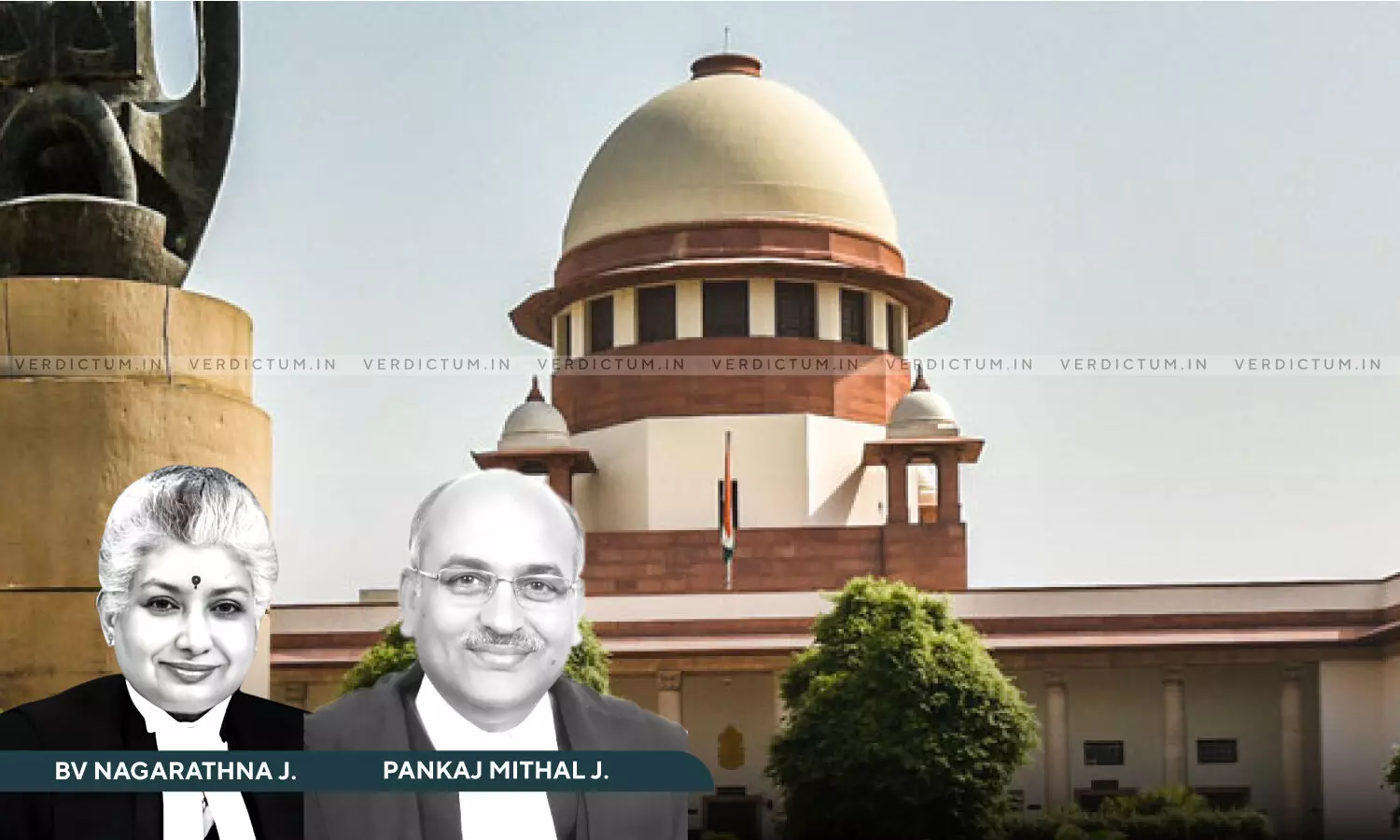
Beneficial Legislations Are For Women's Welfare & Not Means To Threaten, Domineer Or Extort Husbands: Supreme Court
 |
|The Supreme Court has observed that women need to be careful about the fact that the strict provisions of the law in their hands are beneficial legislations for their welfare and not means to “chastise, threaten, domineer or extort” from their husbands.
The Court dissolved the marriage between the husband and the wife, exercising its power under Article 142 of the Constitution. The Bench observed that the marriage had irretrievably broken down and that forcing the parties to continue would only cause further distress. The wife had sought a transfer of the divorce petition filed by the husband from Bhopal to Pune.
The Bench of Justice B.V. Nagarathna and Justice Pankaj Mithal observed, “In recent times, the invocation of Sections 498A, 376, 377, 506 of the IPC as a combined package in most of the complaints related to matrimonial disputes is a practice which has been condemned by this Court on several occasions.”
Senior Advocate N.K. Modi represented the Petitioner, while Senior Advocate Meenakshi Arora appeared for the Respondent.
The marriage between the husband, a U.S. citizen and the wife, a postgraduate in Finance and Naturopathy, took place in 2021. However, discord arose shortly after, allegedly over the husband’s ties to his children from a previous marriage and his ailing father.
The husband filed three successive divorce petitions, the first dismissed as withdrawn, the second filed jointly for mutual consent but dismissed for being premature, and the third, filed under Section 13(1)(ia) of the Hindu Marriage Act (HMA).
The wife on the other hand had filed a number of criminal cases, including FIRs under Sections 354, 376, 377, 420, 498A, 503, 506, and 509 of the IPC and Sections 66 and 67 of the IT Act, 2000, against the husband and his father. She alleged cruelty, cheating, and harassment, leading to the issuance of a Look Out Circular (LOC) and the husband’s arrest.
The Supreme Court while granting divorce to the parties under Article 142(1) of the Constitution on the ground of irretrievable breakdown of marriage, noted that on one hand the wife had stated that she was a dutiful wife happily residing with the husband, but simultaneously had also filed criminal complaint him alleging serious offences like cruelty, outraging of modesty, rape, cheating, etc.
“In certain cases, the wife and her family tend to use a criminal complaint with all the above serious offences as a platform for negotiation and as a mechanism and a tool to get the husband and his family to comply with their demands, which are mostly monetary in nature,” the Bench noted.
The Court pointed out that even the trial courts are also hesitant in granting bail to the accused persons in such cases being swayed by the “gravity of the offences” mentioned in the FIR. “The collective effect of this chain of events is often overlooked by the actual individual players involved therein, which is that even minor disputes between husband and wife tend to snowball into ugly prodigious battles of ego and reputation and washing dirty linen in public, eventually leading to the relationship turning sour to the extent that there remains no possibility of a reconciliation or cohabitation,” it remarked.
The Bench highlighted the growing problem of trivial quarrels between spouses turning into criminal complaints and referred to its decision in Achin Gupta v. State of Haryana wherein it was held, “The Police machinery cannot be utilised for the purpose of holding the husband at ransom so that he could be squeezed by the wife at the instigation of her parents or relatives or friends. In all cases, where wife complains of harassment or ill-treatment, Section 498A of the IPC cannot be applied mechanically. No FIR is complete without Sections 506(2) and 323 of the IPC.”
The Court stated that “the women need to be careful about the fact that these strict provisions of law in their hands are beneficial legislations for their welfare and not means to chastise, threaten, domineer or extort from their husbands.”
Consequently, the Court held, “Thus, this is a fit case for us to exercise our discretion under Article 142(1) of the Constitution of India to dissolve the marriage between the parties on the ground of irretrievable breakdown of marriage. Hence, the application is liable to be allowed and is allowed.”
Cause Title: R v. S (Neutral Citation: 2024 INSC 1014)
Appearance:
Petitioner: Senior Advocate N.K. Modi; AOR Anindita Mitra
Respondent: Senior Advocate Meenakshi Arora; Advocate Satish L. Maneshinde, Shivali Sharma, Anupam Shukla, Anadi Kumar Taylor and Nikhil Maneshinde; AOR Priyank Upadhyay